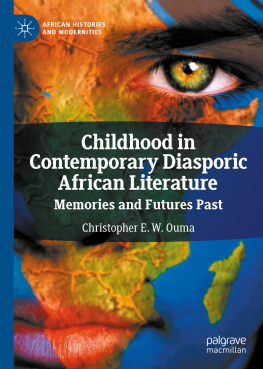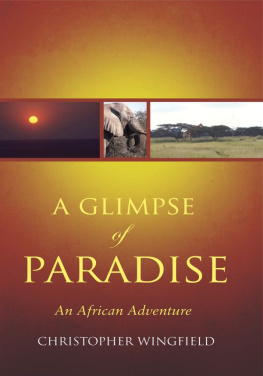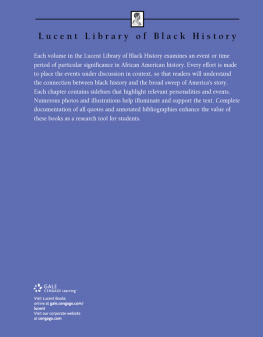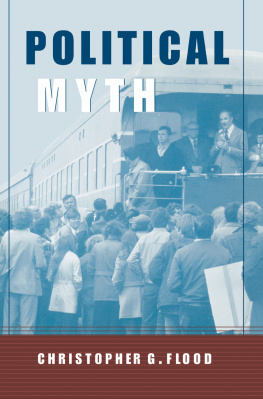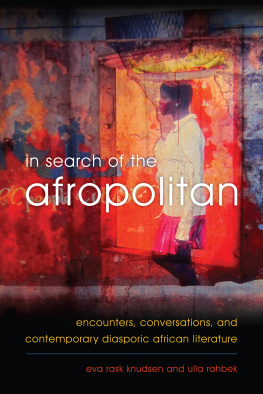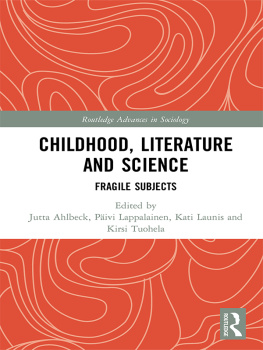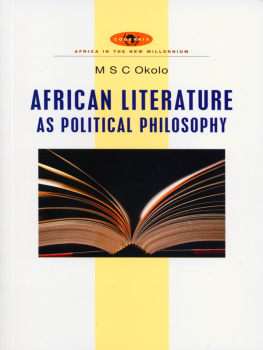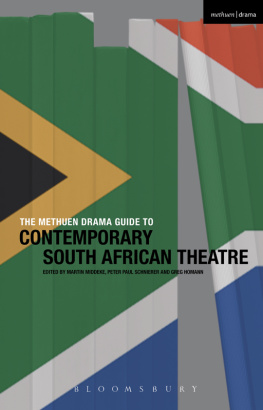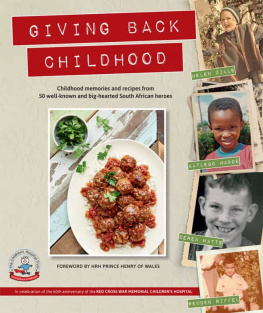Christopher E. W. Ouma - Childhood in Contemporary Diasporic African Literature: Memories and Futures Past
Here you can read online Christopher E. W. Ouma - Childhood in Contemporary Diasporic African Literature: Memories and Futures Past full text of the book (entire story) in english for free. Download pdf and epub, get meaning, cover and reviews about this ebook. year: 2020, publisher: Palgrave Macmillan, genre: Romance novel. Description of the work, (preface) as well as reviews are available. Best literature library LitArk.com created for fans of good reading and offers a wide selection of genres:
Romance novel
Science fiction
Adventure
Detective
Science
History
Home and family
Prose
Art
Politics
Computer
Non-fiction
Religion
Business
Children
Humor
Choose a favorite category and find really read worthwhile books. Enjoy immersion in the world of imagination, feel the emotions of the characters or learn something new for yourself, make an fascinating discovery.
- Book:Childhood in Contemporary Diasporic African Literature: Memories and Futures Past
- Author:
- Publisher:Palgrave Macmillan
- Genre:
- Year:2020
- Rating:3 / 5
- Favourites:Add to favourites
- Your mark:
- 60
- 1
- 2
- 3
- 4
- 5
Childhood in Contemporary Diasporic African Literature: Memories and Futures Past: summary, description and annotation
We offer to read an annotation, description, summary or preface (depends on what the author of the book "Childhood in Contemporary Diasporic African Literature: Memories and Futures Past" wrote himself). If you haven't found the necessary information about the book — write in the comments, we will try to find it.
Childhood in Contemporary Diasporic African Literature: Memories and Futures Past — read online for free the complete book (whole text) full work
Below is the text of the book, divided by pages. System saving the place of the last page read, allows you to conveniently read the book "Childhood in Contemporary Diasporic African Literature: Memories and Futures Past" online for free, without having to search again every time where you left off. Put a bookmark, and you can go to the page where you finished reading at any time.
Font size:
Interval:
Bookmark:
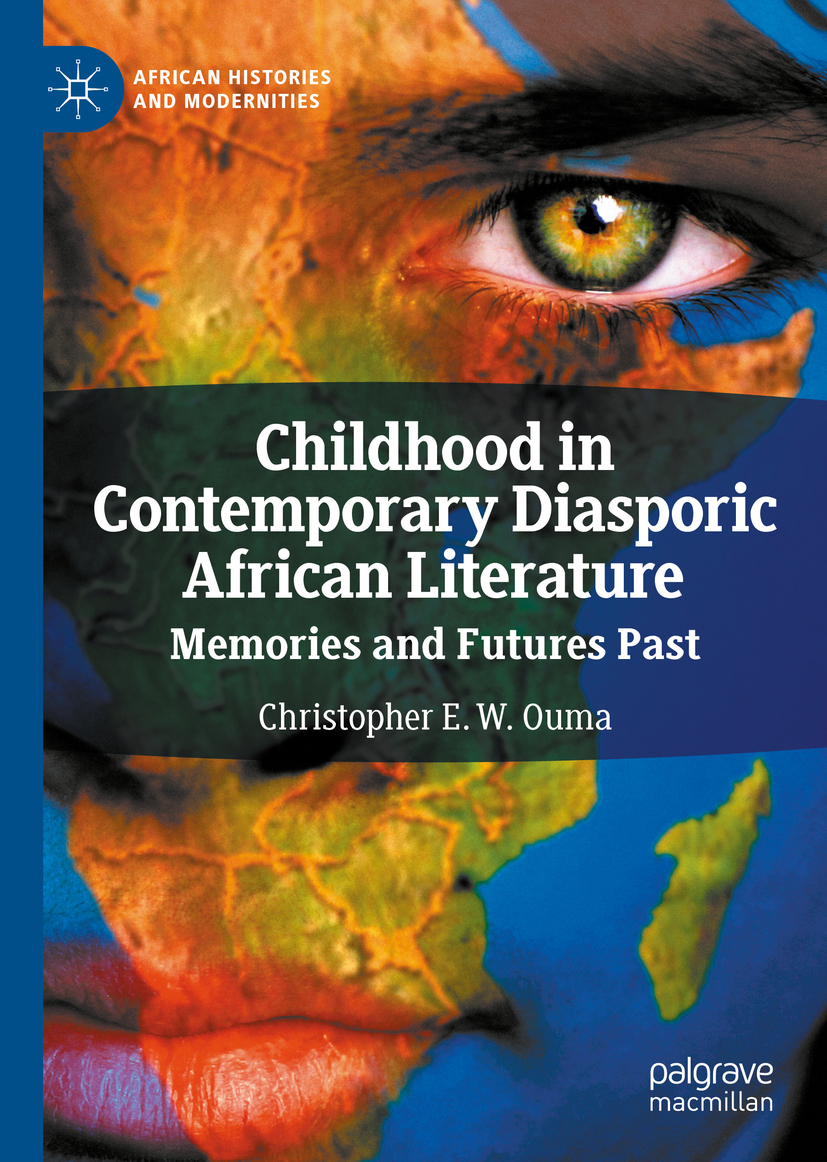
This book series serves as a scholarly forum on African contributions to and negotiations of diverse modernities over time and space, with a particular emphasis on historical developments. Specifically, it aims to refute the hegemonic conception of a singular modernity, Western in origin, spreading out to encompass the globe over the last several decades. Indeed, rather than reinforcing conceptual boundaries or parameters, the series instead looks to receive and respond to changing perspectives on an important but inherently nebulous idea, deliberately creating a space in which multiple modernities can interact, overlap, and conflict. While privileging works that emphasize historical change over time, the series will also feature scholarship that blurs the lines between the historical and the contemporary, recognizing the ways in which our changing understandings of modernity in the present have the capacity to affect the way we think about African and global histories.
Editorial Board
Akintunde Akinyemi, Literature, University of Florida, Gainesville
Malami Buba, African Studies, Hankuk University of Foreign Studies, Yongin, South Korea
Emmanuel Mbah, History, CUNY, College of Staten Island
Insa Nolte, History, University of Birmingham
Shadrack Wanjala Nasongo, International Studies, Rhodes College
Samuel Oloruntoba, Political Science, TMALI, University of South Africa
Bridget Teboh, History, University of Massachusetts Dartmouth
More information about this series at http://www.palgrave.com/gp/series/14758

Cover illustration: duncan1890 / Getty Images, Earth boy Africa, 157188162
This Palgrave Macmillan imprint is published by the registered company Springer Nature Switzerland AG.
The registered company address is: Gewerbestrasse 11, 6330 Cham, Switzerland
Well they say, It takes a village. This book would not have been possible without the help and encouragement of numerous people over the course of a number of years. I would like to first of all thank a host of mentors, who have at various moments in the life of this book provided much needed words of wisdom and encouragement. Professor James Ogude, I would like to thank you for making this world of ideas, from their very foundations possible, through your mentorship and guidance. Professors Bhekizizwe Peterson, Dan Ojwang, Pumla Gqola and Isabel Hofmeyr, I would like to thank you all for playing different roles that created the possibility of this achievement. There is a cohort of forebrothers and sisters from the African Literature Department at University of the Witwatersrand who Id be remiss not to give a shout out to: Grace Musila, Dina Ligaga, Senayon Olaoluwa, Osita Ezeliora, Busuyi Mekusi, Maina Mutonya, Sean Rogers, Florence Sipalla, Austin Tam-George and Dishon Kweya. Wherever you are, you folks remain an inspiration. Then there is a group of my intellectual contemporariesbrothers and sisters in armsThabisani Ndlovu, Jendele Hungbo, Agatha Ukatha, Edwin Mosoti, Chris Wasike, Neo Musangi, Naomi Nkealah, Nafeesa Nichols and Dereline Marco. I appreciate your formative support when the ideas that founded this book were hatched. A special mention goes to Khwezi Mkhize, Mfowethu, transtemporal mfana! siyabonga gakhulu! This hardly does justice to fourteen years of friendship across cities and continents. But thank you bro, for the unwavering generosity of your friendship.
At the University of Cape Town (UCT), I would like to thank Professor Harry Garuba, for his mentorship and consistent support for the last six years and for reading some sections of this book in its early stages. Thanks to Professor Meg Samuelson also for engaging with me during the early stages of the book. A special thank you goes to two very brilliant graduate students who provided much needed research assistanceSarah Smit and Rowan Morar. Isa Mkoka and Shihaam Peplouw in the English Department at UCT held me up during some of the most challenging periods. I thank Dr Zethu Matebeni for comments on some chapters of the book, for being such an incredible mentor and friend over the past six years, for simply being one of the most brilliant minds alive, apart from being such a stellar human being. Big thank you to my intellectual family and supportive colleagues at UCT, all of who I look up to: Asanda Benya, Shose Kessi, Elelwani Ramugondo and Floretta Boonzaier. To Daniel Munene and Roger Gachago for keeping me grounded and to Divine Fuh and Lauren Paramoer for being the most incredibly generous souls I know. A special thank you to Phila Xuza, you know what kind of motivation you have provided, including your time and space.
The final drafting of this book would not have been possible without the incredible support of the folks at the Hutchins Centre at Harvard, during the fall semester of 2018. A special thank you Velma Dupont and Krishnakali Lewis, also to my writing buddies: ZZ Packer, Jessica Paige, Mathew Morrison and Reighan Gillam. Thanks to Professor Peter Hulme for reading through chapter drafts. Some of the most generous friends I met in Cambridge include Karilyn Crocket, Niousha Roshani, Pablo Herrera Veitia and Charles Agong. This book would also not have been possible without the help of the Research Development Grant at the University of Cape Town, the UCT Block Grant as well as funds from the National Research Foundation (NRF). Finally, thank you to my family back in Kenya: My amazing and generous Aunt and uncle Konnie and Ken, my sister and brother Dorothy and Kelvin. My incredible grandmothers Selah, Ruth and particularly Mainathis is for you.
Font size:
Interval:
Bookmark:
Similar books «Childhood in Contemporary Diasporic African Literature: Memories and Futures Past»
Look at similar books to Childhood in Contemporary Diasporic African Literature: Memories and Futures Past. We have selected literature similar in name and meaning in the hope of providing readers with more options to find new, interesting, not yet read works.
Discussion, reviews of the book Childhood in Contemporary Diasporic African Literature: Memories and Futures Past and just readers' own opinions. Leave your comments, write what you think about the work, its meaning or the main characters. Specify what exactly you liked and what you didn't like, and why you think so.

